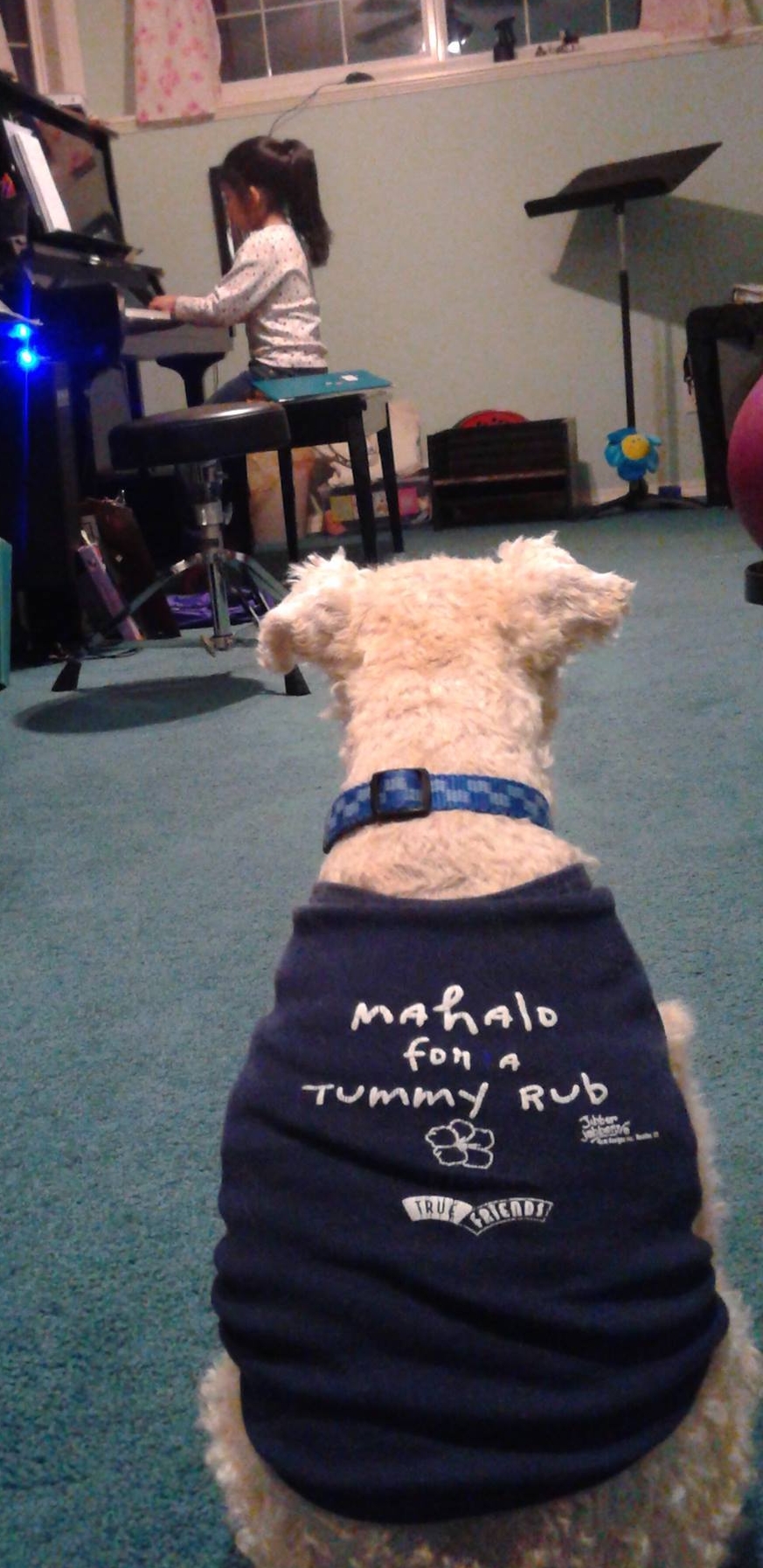This year, I've made minor changes to Maestro's Top Dogs, my student incentive program. These changes have led to progress in two key areas: technique and performance. Here's a quick rundown on what I changed and how things are working out so far.
To bring new readers up to speed, the gist of my student incentive program is that students earn Maestro Bucks in various ways throughout the year. They get to spend their money at Maestro's Market. The Top Dogs in the four areas (Technique, Practice, Bulletproof Musician Playlist, and Music Moxie) will earn a special prize at the end of the year.
Practice hard, earn Maestro Bucks.
Maestro's Technique Challenge
Everyone who knew Maestro knew just how picky he was about technique. He was famous for stomping out of the studio if he deemed any scales, chords, and arpeggios sub-par (including mine).
The big change is that I adjusted the reward for each cleared technical exercise according to playing level: beginner to Pre-Grade students earn $10 Maestro Bucks (MB) per exercise, Grade 1 - 5 students earn $20 MB each, Grade 6 - 8 students earn $40 MB each, while Grade 9 and 10 students earn $50 MB each.
In the past, students earned the same amount of MB for an exercise, regardless of level. This resulted in the younger students learning all of their pentascales quickly, while the more advanced students took much longer. With this year's change, my students are progressing more steadily - on the whole.
Of course, there are some students who still balk at practising their scales, chords, and arpeggios. I struck a compromise with them. As this small group is not on the exam track, I have modified their technical exercises to focus on learning the I-V-vi-IV-I chord progression in each key. We "review" their scales and modes at their lessons. Believe it or not, they actually do practise the chord progression at home (probably because this is the progression used in nearly every pop song).
As for my exam track students, they have learned all their technical requirements much earlier compared to years past. This gives them plenty of time to secure tempo and memory. Since they already know their technical exercises for their level, their weekly incentives are tied to tempo and memory.
Maestro was extremely proud of his market. He'd be happy to know that it's still in operation in his name.
Maestro's Practice Challenge
In the past, I awarded $2 MB per completed goal. This year, I wanted to encourage practice frequency as well as give a bigger payoff for mastering a piece. As a result, students earn $5 MB for each day practiced (theory homework can also be logged).
Here's the practice sheet that we have been using this year. My students have been tweaking it throughout the year.
My students have a Bulletproof Musician Playlist, which contains songs they have mastered, plus songs that all musicians should know, like Happy Birthday and O Canada. As they master a song (as in, they can play it fluently versus perfectly), it gets added to their Playlist. This list becomes their go-to set list whenever someone puts them on the spot to play a song (thus, making them bulletproof).
For ease, the breakdown is identical to Maestro's Technical Challenge. This change has evened the playing field immensely. The beginner students wind up with longer Playlists than their seniors, but the advanced students will earn more each time they add to their list, because let's face it, their pieces are more difficult.
One interesting observation: my students are generally learning their repertoire at a faster rate than they did last year.
Maestro's Music Moxie Challenge
Maestro loved a good performance just as much as the next canine studio assistant.
This area underwent a few changes as well. The main change is that I wanted to better recognize the extra effort required to do something above and beyond their regular work:
$20 MB for each solo or collaborative piano performance
Memorization bonus ($10 MB/beginner piece, $20 MB/Grade 1 - 5 piece, $40 MB/Grade 6 - 8 piece, $50 MB/Grade 9+ piece)
$10+ MB each time you help out in the studio
$25+ MB per composition
$25+ MB for each concert you attend or studio workshop you participate in
The biggest change I've seen is that students are performing more this year.
Next up: Find out about my 20 Piece Polishing Challenge. Post will be out later this week.




